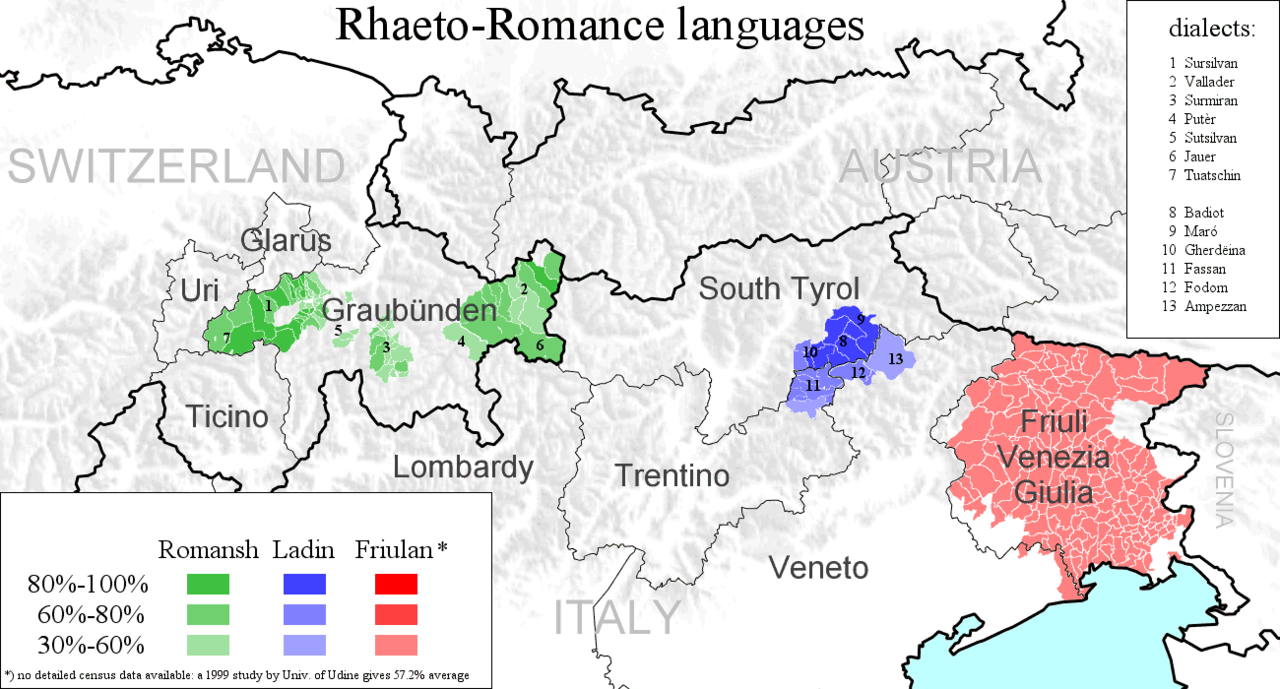 |
| Albula Alps |
I discovered that my grandmother had a cousin who emigrated from Lombardia and settled in northern Wisconsin, where she married a man whose surname was Manni. When hearing of this in the past, or reading it on some family biography or obituary, nothing in particular registered with me. Manni is an Italian surname. After poking and prodding around recently, partly to examine where the Manni family originated, I found out that they were not from say Lombardia or the Veneto as expected... but were from Switzerland! My very next thought was TICINO! That would have been a very curious connection since the Swiss Italians are historically Lombard in culture and language, and especially the more particular Alpine cultural aspect of it. Of course, the migration of Ticinese were a California phenomenon, not at all what one would expect in Wisconsin.
Well, as it turns out, the Manni's were Romansh! The Romansh were an ancient people who clearly have a linguistic connection to Latin/Roman and historical Rhaetia. Sandwiched between Swiss and Austrian Germans to the north, and Lombardo-Venetians to the south, their particular identity has been marginalized and they've lost ancestral territory and sovereignty over the centuries. Actually the Romansh in Albula are surrounded by German speaking communities, so there's a slight geographical disconnect between the Romansh and Lombard speaking areas (they do connect on the northern Ticino border to the east). Jim Caviezel is one very famous American who is half Romansh and half Irish. The Manni family was from the Albula District or Albula Alps of Graubünden, with links to the Maloja District as well. I really don't know anything about this particular family of whom I share an affinity, but from sifting around their family tree I noticed that they have the coolest names! Men named Ivan, Jacob, and Emil; women named Veronika, Mimi, Naoma, and Sabina; surnames like Manni, Accola, and Bandli. My immigrant ancestors were more like Basilio, Santo, Bertillo, Giovanna, Coronata, and Theresa; with surnames like Calvetti, Brunelli, Fornoni, and Bellicini.
 |
| Engadin Valley |
 |
| Rhaetian Railways snaking through the Albula and Bernina Alps |
 |
| The Manni family and related clans were from the third (L-R) of the four Romansh areas above |
 |
| The Albula Alps of Graubünden |
The Great Alps,
Its massive mountains and valleys,
Its majestic peaks,
Its mighty forests, rivers, and lakes,
The land that shaped us!
.


No comments:
Post a Comment